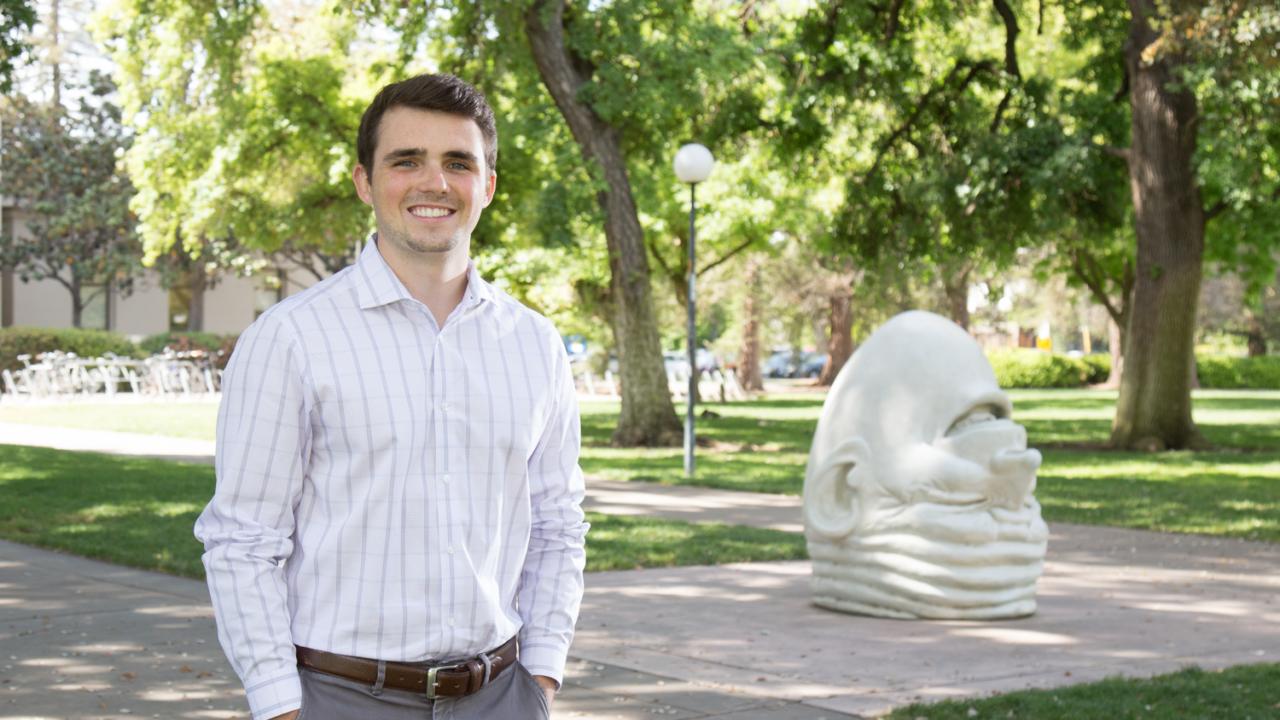
A Mind for Service Earns Connor Grant the Veloyce Glenn Winslow Jr. Award
“Connor is an upbeat and enthusiastic learner, and has the type of energy, thirst for knowledge and an ability to understand complex systems that we should be recruiting into medicine.” -David Tom Cooke, Department of Surgery
As a high school student in Brentwood, Tenn., Connor Grant thought his career future lay in business and marketing. That changed his junior year thanks to a family friend, an emergency room physician who invited Grant to shadow her during a shift.
“She said, ‘You know, I think you’d love what I do,’” recalled Grant, today a senior in neurobiology, physiology and behavior.
“Within the first 15 minutes, they rolled in a gunshot patient,” he said. “The doctor I was shadowing was amazing. She just took complete control of the room and had everyone doing a specific task to save this patient.”
The emergency room’s transformation amazed Grant. One moment, personnel worked silently on their computers, and the next, they were standing, ready to lend a hand. No one was frazzled; they were calm.
These leadership qualities struck Grant, kindling a drive to pursue the medical profession.
As a soon-to-be graduate, Grant departs UC Davis for medical school in the fall. But he’ll leave campus with one of the university’s highest honors, the Veloyce Glenn Winslow Jr. Award, which recognizes a graduating male student for outstanding leadership and scholarship. The award was established in 1966 to memorialize the achievements of Veloyce Glenn Winslow, Jr., who died tragically while serving as vice president of the UC Davis student body.
“It really felt like an all-encompassing award of my experience here,” said Grant. “My time at Davis is coming to a close, and I hope that I’ve left some sort of legacy.”
